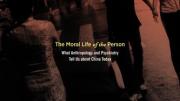China is an economic powerhouse, and a rising strategic force. But outsiders often have little sense of the Chinese as people. In Deep China: The Moral Life of the Person (University of California, $65; $26.95 paper), eight scholars grounded in anthropology and psychiatry examine the inner selves of people who have undergone profound changes in their sense of place, opportunities and circumstances, sexual mores, and more. The scholarly collaboration, moreover, illustrates a global web of China studies, embracing Rabb professor of anthropology Arthur Kleinman (also professor of medical anthropology and of psychiatry), five Harvard Ph.D.s (Yunxiang Yan, Jing Jun, Pan Tianshu, Wu Fei, and Guo Jinhua), and two Harvard postdoctoral fellows (Sing Lee and Everett Zhang)—now teaching at four Chinese universities and three American ones. From Kleinman’s concluding chapter, “Quests for Meaning”:
Think of what a Chinese man or woman in their eighties has lived through: the chaos of the warlord period and the uncertainty of the early years of the Nationalist government’s efforts to reunify a fractured country; the long war with Japan during which hundreds of millions of people were uprooted and 20 million were killed; the turmoil and disintegration during China’s civil war; the brutal excesses of the early days of the Chinese Communist Party’s efforts to exterminate class enemies, with perhaps a million landlords killed; the deep tragedy of the Great Leap Forward…with 30 million deaths; the whirlwind of destruction called the Cultural Revolution, when intellectuals, cadres, and ordinary urban dwellers got caught up in the fire of mass political campaigns, brutal struggle sessions in every work unit, and the meltdown of government and civil institutions. Add in the Korean War, when China suffered a million casualties, and all the paranoia-generating campaigns against rightists, counter-revolutionaries, and others labeled enemies of the people. Then consider the early days of the great transformation to a market economy, when uncertainty was so substantial people didn’t know which direction would bring safety and security. Against this troubled and troubling historical background, isn’t the audacity of simply being happy and enjoying life the most remarkable of collective and personal changes?
…Thirty years on, the situation for ordinary Chinese is so very different that we can say without exaggerating that the psychology of the Chinese people has undergone arguably its most dramatic transformation since the decline of the Qing dynasty in the late nineteenth century.…Or, put differently, hunger for food, which had beset Chinese for centuries and become a fixture of their cultural imagination, was no longer (for most) either a reality or a fear. Now it was replaced by a hunger for those good things in life that were flooding the market and the imagination.
…[T]he quest for meaning for hundreds of millions of Chinese is the search to build and sustain a good life: a life filled with simple pleasures; a life that is relatively and modestly secure in a dangerous and unpredictable world; a life that offers better chances for children and grandchildren; a good life that represents a new normal.









